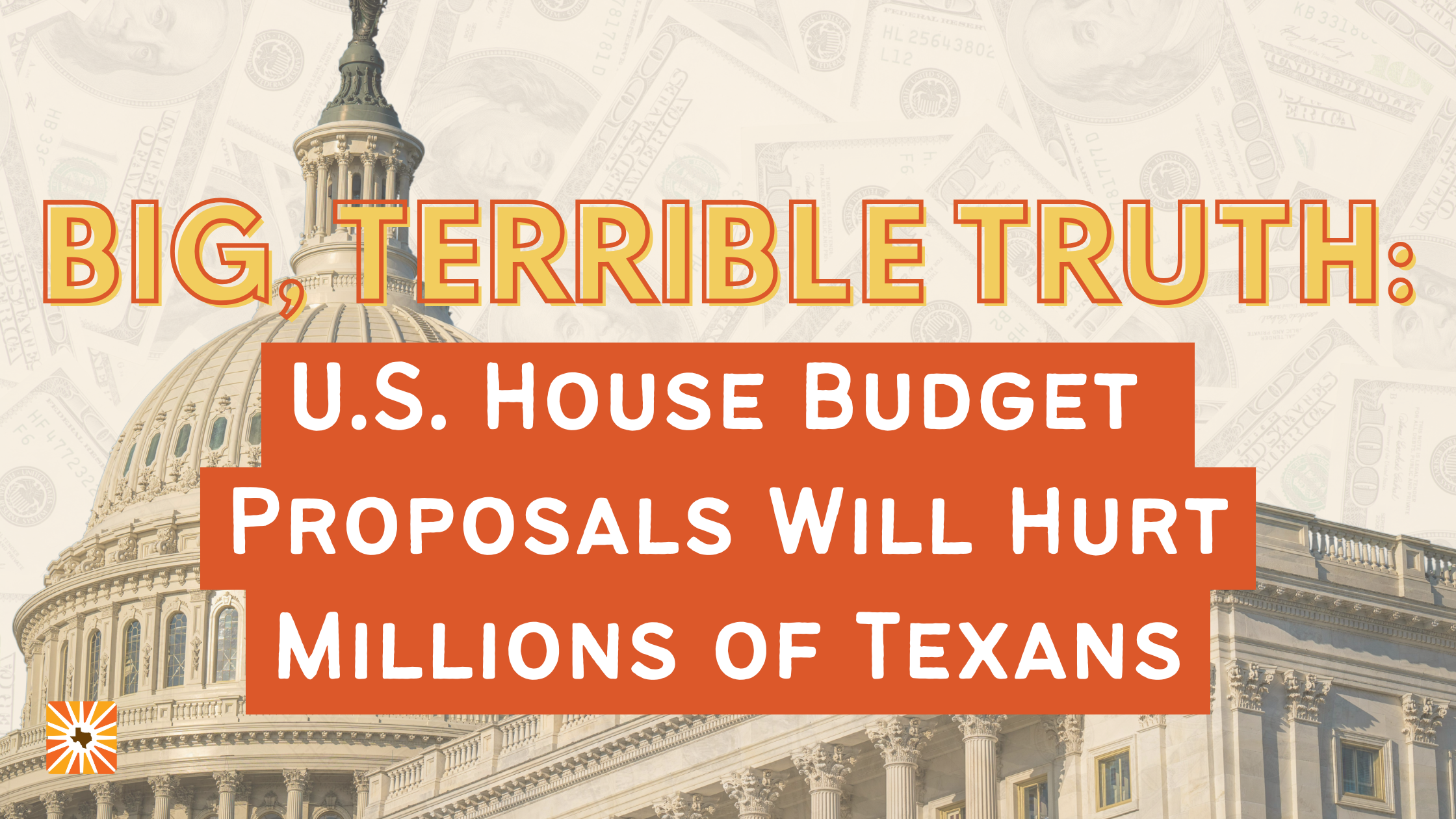Last week, 25 U.S. House members from Texas voted in favor of nearly one trillion dollars in federal funding cuts to Medicaid, SNAP, and other programs. The budget reconciliation bill heads to the U.S. Senate next. As they deliberate, our Senators must face the truth: if they vote in favor of the proposed cuts to Medicaid and SNAP funding, they will create a cascade of uncompensated services for our state and hardship for every Texan, especially our most vulnerable relatives, neighbors, and communities.
Federal cuts will force 8 to 13 million people to become uninsured in the next ten years – at least two million of them live in Texas. Of those two million, most are children, seniors, and people with disabilities or are self-employed or work for small businesses.
Outlined changes to SNAP eligibility requirements will affect who and how many people will qualify for food assistance. The Center for Budget and Policy Priorities estimates 683,000 Texas parents and 123,000 elderly Texans who have trouble finding work due to their age or experience will lose food assistance. Estimates indicate this will cost Texas at least $2 billion in lost economic activity per year, while increasing unemployment and healthcare costs.
Nearly 1.6 million U.S. veterans rely on Medicaid and Texas is home to more veterans than any other state. If U.S. Senators cut program funding to pay for tax cuts for the wealthy, they’ll be doing so at the cost of our veterans’ support systems.
As state lawmakers wrap up the 89th legislative session, these cuts will force them to make hard decisions about whether to make up for the lost funding or end it – forcing our state’s most vulnerable to face hunger and drop out of care systems. The federal government will stop sending money to states for dually funded programs, and Texans receiving care for chronic illness or in nursing homes, for example, may lose the programs they depend on.
Currently, states don’t have to pay for SNAP benefits and only pay 50% of the program’s administrative costs. Based on Texas’ current program costs, this federal vote will cost Texas $1.2 billion per year to pay its share of the benefits, including the estimated $87 million in new administrative costs.
For the sake of transparency, Every Texan wants to make sure Texans understand what their elected officials are doing “in the name of transparency.” Under the proposed House legislation, the bottom 40% of households in the U.S. will lose income and resources, while the top 1% of households – those who make nearly $800,000 a year – will gain even more wealth. If the cuts in the House reconciliation bill are approved by the U.S. Senate, health, income, and quality of life will drop for all Texans across the state. The time to speak with our U.S. Senators is now.
